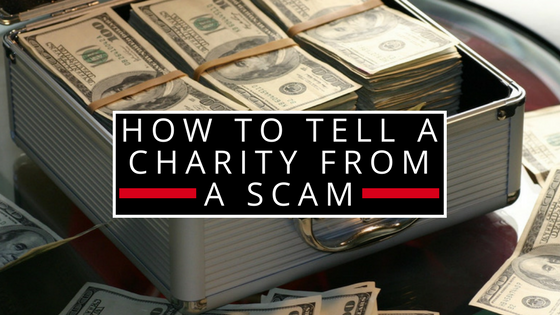In the wake of four destructive hurricanes, Americans are rallying together to help the thousands of people in need. Although there are tons of charities whose only goal is to help others, there are many scam artists using tragedies for personal gain. With this in mind, I will give you some tips on how to do your research and find legitimate charities that work to support others.
Transparency
There are many charities who operate transparently, and the reason should be obvious. If you give your money to an organization, you might like to know what the money is going toward. Charity Navigator, a website that ranks charities’ legitimacy, has created a chart of metrics they look at to rank charities’ accountability and transparency. This can be a great place to start, although some charities seem to have disproportionately positive scores, despite public criticism. A good charity should release enough financial information that its donors will understand what their money is going toward.
A Plan of Action
Charities without a plan of action are not worth your money. Good charities always have a plan for what to do next (even if the plan is to meet to decide where to spend their money), but great charities are constantly providing good work to the community. Sure, your local church or soup kitchen may not have volunteers flying to aid Puerto Rico, but if you ask the people in charge, they will likely give you an idea on what they are putting their money toward and when.
Non-Monetary Donations
Scam charities are going to ask only for monetary donations. To save yourself from falling victim to these scams, look for charities that accept physical donations, such as blankets, food, or medical supplies. You can donate money to those charities, but knowing they accept more than just money is a good sign that they are trustworthy.
Local Charities
Local charities are often more reputable than online charities. Look up organizations in your neighborhood to find nonprofits to research. The reasoning behind trusting local charities is the community aspect; if people heard that local charities were misusing their funds, they would likely no longer exist. Also, be careful that any local charities you look into are not chapters of a national organization. They may still be legitimate, but they are not the same thing.
Charities to Watch Out For
Over time, there have been many charities who offer great service, but still manage to exploit both donors and victims. The American Red Cross has been scrutinized for several years over their lack of assistance to Haitian victims of the 2010 hurricane. PETA, another heavily criticized organization, has come under fire for euthanizing many animals, some of which are not given the opportunity to be adopted. These two charities are widely publicized, yet they still mismanage their money.
If you are still not sure where to start looking for a good charity, check out Charity Watch’s page of top-rated charities. You are sure to find a charity worthy of your support.
For more information, please visit: SylvesterKnox.org

